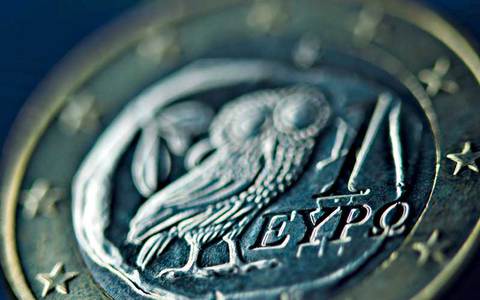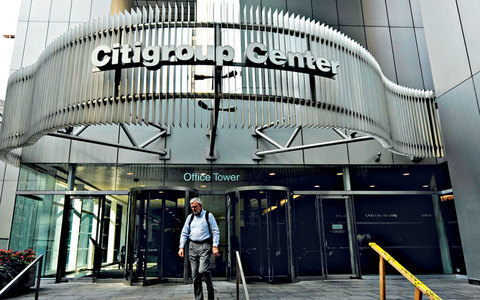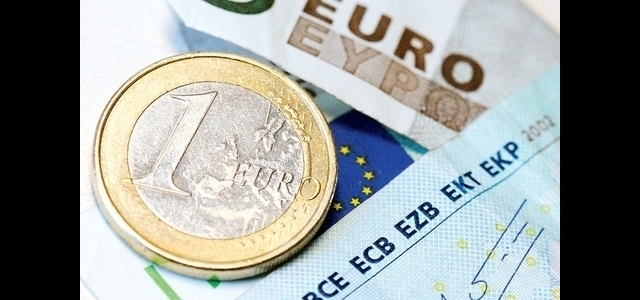Picture: www.imerisia.gr
Not only
the Mayans were wrong in their prophecy about the end of the world. The
same happened to markets prophets, who totally failed in their
prognoses about the second-worst scenario for 2012 - Greece's exit from
the Eurozone. Neither the end of the world, nor the notorious Grexit
happened, despite warnings from some of the top names of international
investment circles. Successful speculators, prominent financiers,
"barons" of the financial sector, as well as banking giants in the
international market, they all rushed to send Greece outside the
Eurozone, but, at the end of 2012, they suffered a serious blow on their
reputation and reliability of their predictions was disproved, bringing
serious losses of those who bet on the so-called Grexit.Of course, Greece and Europe put an end to such scenarios about breaking the integrity of the Eurozone and the single currency in the last possible moment. The vote of confidence in Greece from its partners was given only at the last meeting of the Eurogroup, after repeated adjournments and delays (not always by Athens's fault) - something that fed through the whole year the forecasts of "the Cassandras" (named after the ancient prophet of Troy). They had started to announce the disaster from the very beginning of the year, increased their efforts on the international scene in the summer, and continued until their mouth was closed at the last Eurogroup's meeting. Its crucial message completely changed the negative, until recently, attitude towards Greece - it not only "killed" all catastrophic scenarios, but also caused a change in the credit rating from Standard & Poor's with up to 6 points. This step by the American credit rating agency is not only symbolic to the end of Grexit, but also had practical implications for those who had bet against Greece's success. The fact that the country remained in the Eurozone caused losses to many influential persons in the international markets, and that did not go unnoticed. Imerisia Newspaper presented the most influential names of those who predicted the disaster.

John Paulson
Got rich thanks to ... disasters
The first to ignite the fire in the Eurozone about the possible exit of Greece was famous speculator John Paulson. The billionaire, who won a fortune by betting on the collapse of the American mortgage market in 2007-2008, wanted to cash another disaster. "Greece will go bankrupt by the end of March, thus bringing about the collapse of the Eurozone," said Paulson for Bloomberg Businessweek last February. The result: March was ruthless on his finances and despite the adjustments made during the year, recently, he admitted that he had suffered significant losses as a result of erroneous predictions about the European crisis.
Jim Rogers
Hurried ...
Another "Midas" of the international markets, Jim Rogers, was quick to declare last May on CNBC that Greece will exit the Eurozone. Perhaps he was influenced by the political uncertainty around the formation of the government after the elections. The former partner of George Soros, who is considered an international expert of commodity markets, hastened to empty his portfolio of investments in euro. He continually argued that the only solution for Greece is the deletion of a larger part of its debt - something which, according to him, would mean an automatic exit of the country from the Eurozone. In 2013., After the elections in Germany, there may be no other way.

Jacob Rothschild
Envied the glory of Soros
It seems that Lord Jacob Rothschild was jealous of George Soros's fame, who, in 1992, gained more than 1 billion dollars just in a day, as well as the fame of being the man who got Bank of England on its knees. Rothschild bet almost 200 million dollars against Greece through RIT Capital Partners, a company with 1.9 billion pounds investments, of which he is the Executive President. The possible exit of Greece from the Eurozone would have turned the fourth generation of the famous banking family Rothschild's fortune into a gold mine. Unfortunately for him, Grexit didn't happen.
Nouriel Roubini
Doctor Catastrophe
He himself does not speculate (at least not professionally), but advises speculators and government officials. His shares have risen since 2008, when he was internationally recognised as the man who was the first to predict the credit crisis. This year, however, they took their words back, following his unsuccessful forecast last August in Twitter that "the Troika's draconian programme will strengthen the downturn which will cause the exit of Greece from the Eurozone in 2013, and the Greek government will collapse the following year." So, fans of Dr. Catastrophe will grant him a credit of confidence until next Christmas.
Mohammed El Erian
He was also disproved...
Greece's exit from the euro was a major theme in Pacific Investment Management Co's (or Pimco) investment strategy for 2012 - the company that manages the biggest bond fund in the world. Because of the increased importance the company's theses enjoy in the American media, this strategy was often presented by a lot of the company's famous employees. Mohammed El-Erian, CEO of Pimco, however, even at the end of October, gave 60-70% probability of Greece's exit from the Eurozone. Chronologically, this was the last "Cassandra" that was refuted.
Large banks
UBS
"Greece must leave"
Financiers of the Swiss banking giant had a lot of work in 2012, engaged in disaster scenarios about the Eurozone, which foresaw Greece as the final stop. UBS believed that the Greek debt could not survive and would inevitably require a new restructuring, probably in 2013. Last April, this meant that "Greece will have to leave the Eurozone." The last meeting of the Eurogroup and the change in Greece's rating by S&P disproved the bank. And, despite the great negative impact on its reputation, it had more serious problems - the bank will have to pay fines amounting to 1.5 billion dollars, since it was involved in the manipulation of interbank rates on the London market (Libor) ...

CITIGROUP
"A 90% probability that Greece will leave the Eurozone"
Last September, the American banking giant published a report expressing the opinion that "there is a 90% probability that Greece will exit the euro in the next six months." It did not rule out the possibility that this might happen as early as in September-October, if the Troika's assessment of Greek reforms shows that the Greek financial adjustment programme failed. This projection has two more months to come true ...
JPMORGAN
"The likelihood of Greece's exit from the Eurozone is 50%"
The political crisis in May led analysts at JPMorgan accept the Grexit scenario. As they emphasised, the probability that Greece will leave the Eurozone rose to 50% from 20% before the elections in May. This prognosis remained high until the autumn, when JPMorgan decided to recede the Grexit scenario, replacing it with one of its terms - Grimbo, a combination of the English words Greece and limbo (uncertainty, obligation). These terms were ignored by the decisions of the last Eurogroup's meeting and the green light for Greece's funding...


This comment has been removed by a blog administrator.
ReplyDelete